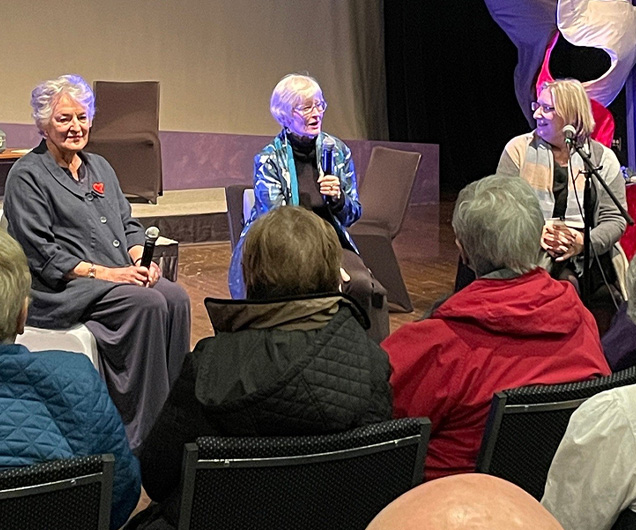
In a riveting convergence of history and the arts, Debbie Harwell’s acclaimed book, “Wednesdays in Mississippi: Proper Ladies Working for Radical Change, Freedom in 1964,” has been transformed into a compelling play by playwright Nicole Burton. Recently staged at a Washington, D.C. area community theater from Nov. 10 to 19, the play not only captivated audiences but also brought Harwell herself to the spotlight.
“I went back to graduate school later in life, and the very first book I read for my first history class had a small description of Wednesdays in Mississippi,” Harwell, a UH history professor and Houston History Magazine editor, said. “It was an autobiography of Dorothy Height, who was president of the National Council of Negro Women (NCNW) for many years and the same age as my mother.”
Harwell attended the performance on Nov. 18, participating in a thought-provoking Q&A session alongside Susie Stedman — one of the 1964 staff members in Mississippi — and moderator Jean Koppen, the play’s producer.
As the all-female cast of “Wednesdays in Mississippi: Working for Radical Change” took center stage, audiences were transported back to a momentous period in history. Through the combined efforts of Harwell and playwright Nicole Burton, the theatrical adaptation illuminated the often-overlooked narratives of women who were the backbone of the Civil Rights Movement and shines a light on intersectionality in the struggle for civil rights. It explored how women from different backgrounds, races and social standings joined to challenge systemic injustice.
“Wednesdays in Mississippi” earned Harwell the prestigious Southern Association for Women Historians Julia Cherry Spruill award for the best book in southern women’s history. The powerful narrative sheds light on the impact of women who, every Wednesday for five years, crossed racial and cultural lines to foster understanding and advocate for radical change in Mississippi.
Harwell discussed the turbulent summer of 1964 as courageous women from affluent families in the North traveled to Mississippi to quietly communicate and form relationships across racially divided communities. Height and Polly Cowan, an affluent Jewish journalist and philanthropist from New York, organized Wednesdays in Mississippi, the first civil rights program created for women by women as part of a national organization. Discussing events through letters under pseudonyms, Cowan called for Black and white women to meet in public places to “break the sight barrier.”
“There were actually women in the audience that attended whose mothers had been Wednesdays, one of whom was a volunteer during Freedom Summer that had been told to leave,” Harwell said. “People asked engaging questions, and the performances sold out both weekends.”
Burton’s play gives glimpses into the historical barriers faced by the WIMS as waitresses refused service, doors were deliberately slammed and politicians cruelly, purposefully intervened.
It was filmed and will be streamed in January 2024. It will also be added to a podcast series later next year.
“The country was very divided at that time, and it is very divided today,” Harwell said. “I like to think that it’s a model that we could still use to get people to make a difference instead of attacking each other.”